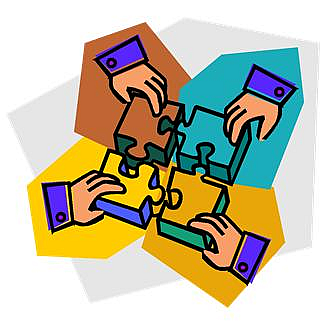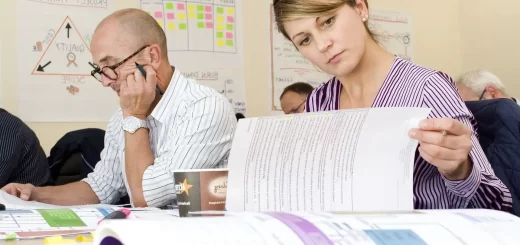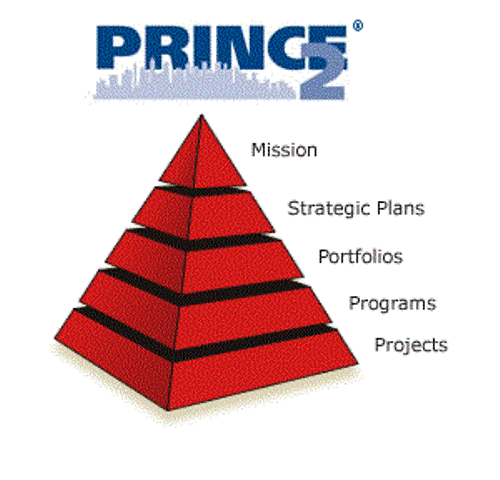A Project Manager’s Role – Key Responsibilities and Duties
 Generally speaking, a project manager’s role embraces the culture of ongoing commitment to delivering exceptional products/services and specific results within the defined scope and top quality. The literature on project management offers us a great variety of books that give the role description, outline how to follow that role, explain what daily duties project managers need to carry out, and so on.
Generally speaking, a project manager’s role embraces the culture of ongoing commitment to delivering exceptional products/services and specific results within the defined scope and top quality. The literature on project management offers us a great variety of books that give the role description, outline how to follow that role, explain what daily duties project managers need to carry out, and so on.
However, I tried to look though free PM articles and reviews on the Web and found out that it was hard enough for me to find a clear and complete definition of project manager duties and responsibilities. I suppose this short yet useful article will help you understand the role and responsibilities. Your comments and suggestions are appreciated.
PM Role Definition
My project management practice shows me that if a person wants to be a successful project manager, he or she needs to be 100% clear of his/her leading role within managerial functions and duties, because otherwise that person is likely to fail at the very beginning of the project manager career. The following definition of project manager’s task is short and not detailed: “To deliver the project on time, within budget and as per specification.”
In other words, you need to clearly state what is to be delivered by your project (that’s about deliverables) and then determine how to produce the project outcome within the schedule assigned and the budget allocated. Actually, that’s the main challenge of any project manager, and that’s how the PM role can be defined.
Key Tasks
I believe that the project manager’s role can be described by the following PM tasks:
1. Recruit the Best Possible Team
A project will be great if it is successfully delivered by a great team. That’s the project manager’s first and foremost responsibility. In other words, the role is to find and recruit the best people and be sure of their skills and abilities in order to collaboratively work on achieving shared goals. Hence, you will need to select the most fitting candidates to the team.
When starting your team building activities, the first thing to do is to document a detailed job description for every person in your team, so that all of them will know and understand what’s expected of them, during the whole time and in every step and phase of the project life-cycle. By having recruited a great team with appropriate skills and abilities and having explained each member of the team what is expected of them, you will follow your project manager role and produce a great result.
2. Motivate and Lead the Team
Your next step in building your project management career is to be the truly leader who can explain everyone what is to be done and by when. Throughout the project course, you need to track team tasks and make sure that every job is done on time and within budget. If some tasks are overdue or require extra push, you will need to identify the delays immediately and then use a corrective action plan to fight the challenge.
At the same time, you should be positive and supportive towards your team, so each member of the team will know that you care along the way. Your project manager job here is to lead by example and to motivate the team to do the same.
3. Control Finances
Your project should have some budget; hence, your project manager role is to define and allocate a clear and sufficient budget that contributes to exploiting available opportunities and achieving the project goals. The main idea of this PM task is to ensure that you do not spend more than you are entitled to; otherwise, your sponsor will be unsatisfied with the outcome produced at the project’s end.
You need to learn to manage project finances carefully, by creating cost spreadsheets and estimates while ensuring that project expenses are budgeted upfront. If your budget is exceeded, you need to immediately communicate with your sponsor and avoid complications in the future. If you strictly follow this project manager role, you will do your project within budget, and no over-estimate will appear. And do not forger to engage your deputy and analysts in performing the cost analysis.
4. Respond to Сhange
When you get your first project management job, take into account that the ability to control change will be one of the most critical requirements for doing the job successfully. During the lifecycle of your project, you need to be an authorized person who controls all changes made to the project scope and responds to change requests (in cooperation with the sponsor and other stakeholders).
The project manager responsibility for change control requires you to define the project scope in advance, at the planning phase, and then review it regularly to ensure that your team does not perform unauthorized work at any time. You will need to communicate with your sponsor to approve change requests. And do not be afraid – you should be ready to respond to changes occurred within your project and timely inform sponsors of the changes, as well as to receive change requests from the customer.
5. Communicate
If you want to be a good project manager, you must have well-developed communication skills. When you can communicate the status of your project regularly and develop reports, you can cope with many problems, such as poor performance, lack of workforce, over-estimates, etc. Your project manager task is to keep your project on track and communicate the status to the stakeholders (team, sponsor, client etc.).
The primary idea of this project manager duty is to never exaggerate and miss a thing but communicate the right messages to the right people at the right time.














